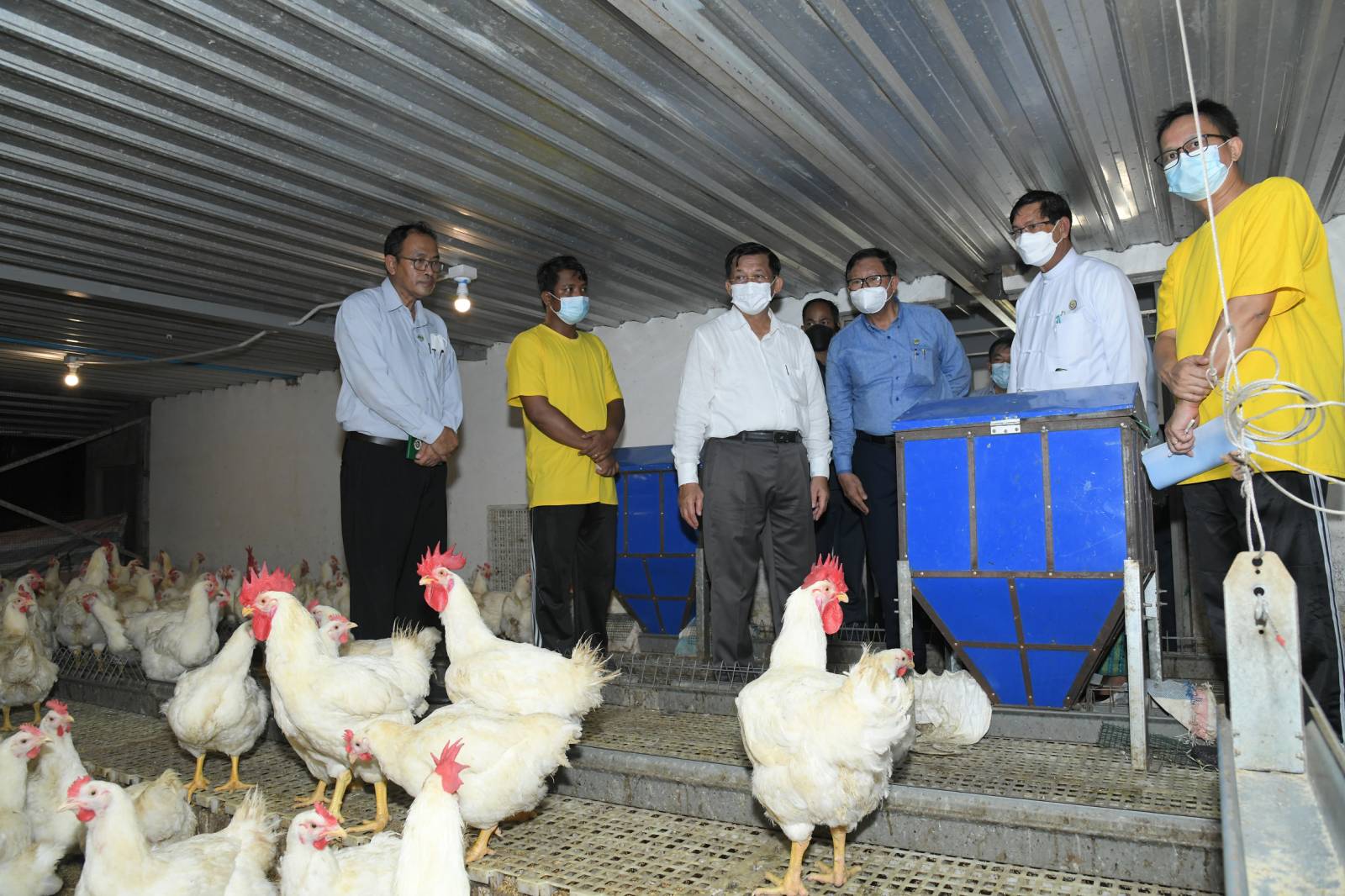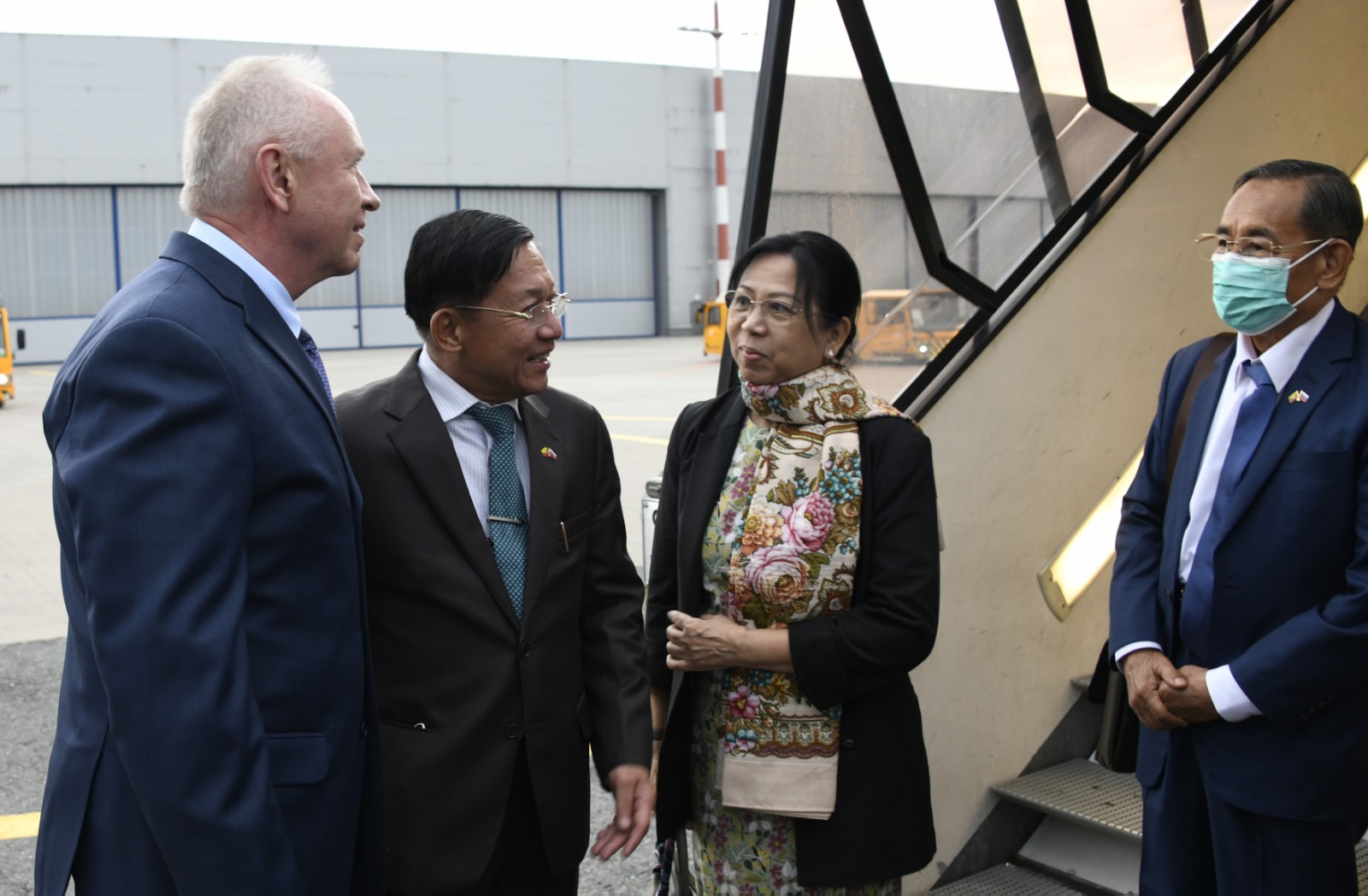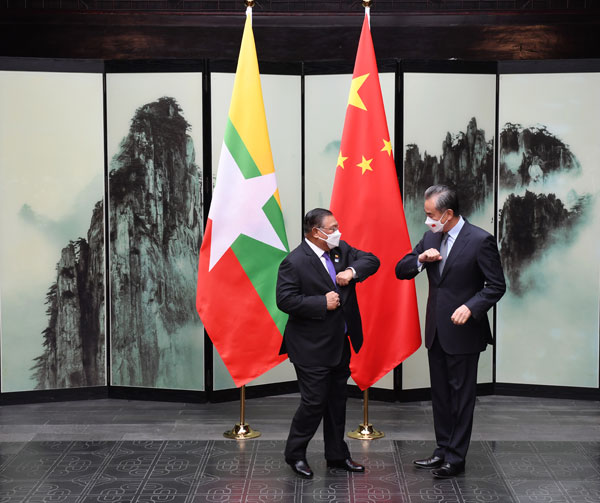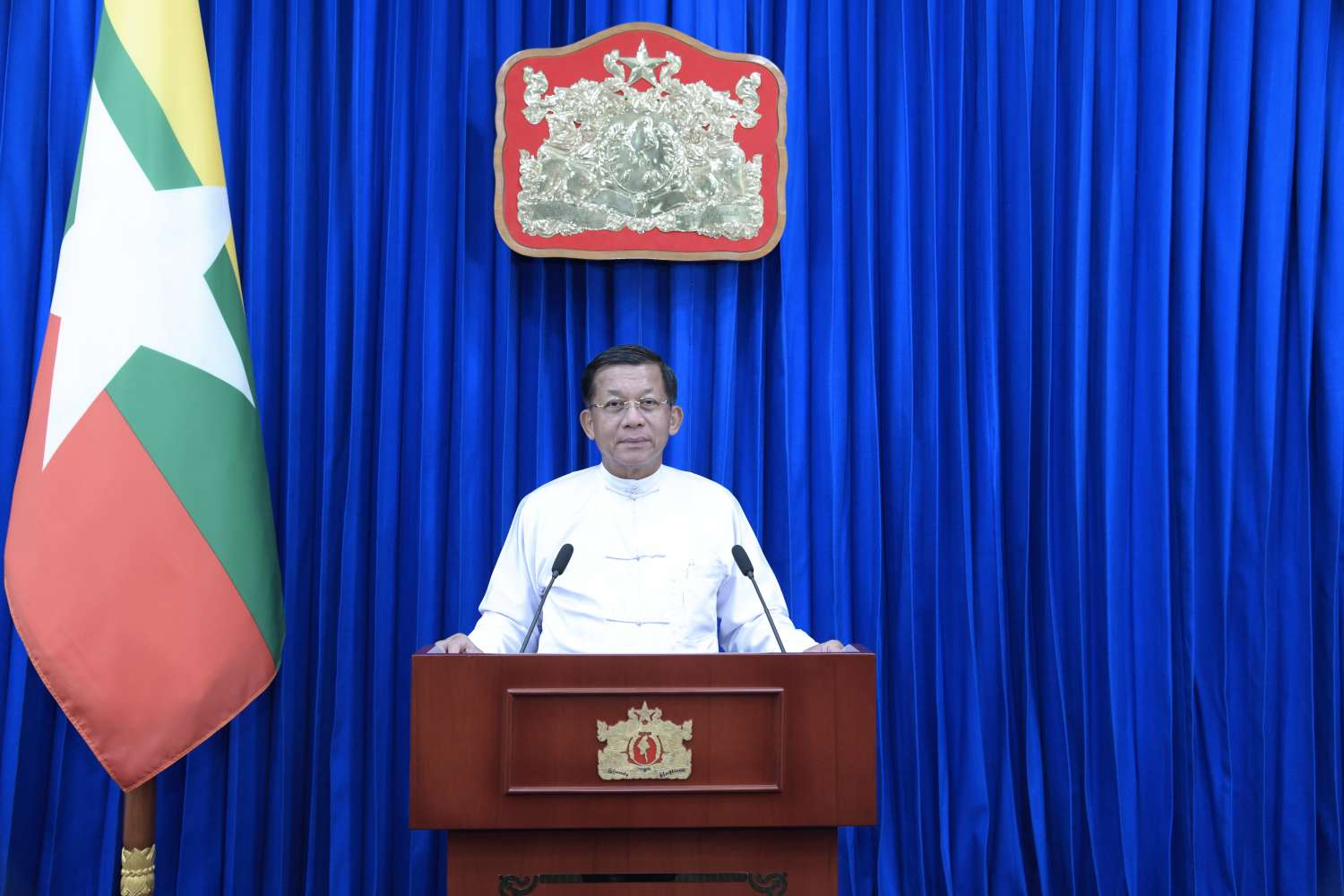Living in an alternate economic reality

In his speech to mark 18 months since the military takeover, junta boss Min Aung Hlaing offered a prediction that Myanmar’s shattered economy will pick up in the next six months—a forecast totally at odds with the country’s economic reality.
The quick wins he foresees are in farming of crops and livestock. His prediction for economic recovery comes at a time when millions of people in Myanmar are living with the harsh realities of unemployment, a surge in the cost of living—with increased prices of basic foods, medicines, fuel and other consumer goods—and a paralyzed banking system.
Many foreign firms have withdrawn their investments from Myanmar, and tens of thousands of Myanmar citizens have left the country to find jobs overseas. Meanwhile, Myanmar’s currency, the kyat, has slumped against the US dollar. Making matters worse, locals have not been able to farm in central Myanmar, the country’s agricultural heartland, as the regime is torching villages there daily.
While the World Bank predicts 3 percent growth for the fiscal year ending in September, it warns that the outlook remains weak and subject to substantial risks. Domestic prices of food, fuel and other imported inputs are likely to remain elevated over the short to medium term, constraining both production and consumption, it said.
Actually, Russia trip was a ‘goodwill’ visit

When Min Aung Hlaing visited Russia in July, he described the trip as a private visit. But in his speech on Monday to mark 18 months since the military takeover, the junta boss falsely claimed the trip was a “goodwill visit”.
He described it that way even after junta media reported on July 13 that the visit was made to consecrate a pagoda in Moscow.
In an effort to bolster the image of their boss, junta media repeatedly referred to Tatarstan chief Rustam Minnikhanov as “president” in their reports and newscasts. Tatarstan is an autonomous region in Russia with less than 4 million people. After Russian President Vladimir Putin barred the Tatar chief from using the title “president”, junta newspapers had to refer to him as “regional chief” in their reports.
Min Aung Hlaing is desperate to achieve international recognition as the leader of Myanmar. But even in Russia—the only country he has been able to visit since the coup, making two trips—the fact that Putin has not received him, the confusion over the capacity in which he made his most recent trip, and the controversy over the status of the person he was received by shows that his struggle for recognition has failed.
Backing for Beijing’s fury over Pelosi visit to Taiwan

Following China’s strong opposition to the visit of US House Speaker Nancy Pelosi to Taiwan, the Myanmar military regime sucked up to Beijing, saying it supports the One China Policy and reaffirming that Taiwan is an integral part of the People’s Republic of China.
Since the putsch last year, China, together with Russia, has extended diplomatic protection to the Myanmar regime at the United Nations Security Council—though its primary motive is clearly to protect its strategic and economic interests in the Southeast Asian nation. China even said it was ready to work with Myanmar “no matter how the situation changes” to achieve the goal of building a China-Myanmar community with “a shared future.”
In July, however, China’s top diplomat, Wang Yi, failed to pay a courtesy call on junta chief Min Aung Hlaing while in Myanmar for three days attending a regional meeting.
The Chinese government’s mouthpiece Global Times said Wang’s trip was for the sole purpose of attending the meeting, and did “not hint at China ‘recognizing’ the current administration.”
Another speech, more disdain for ASEAN

Min Aung Hlaing blamed the COVID-19 pandemic and instability for stalling efforts to implement a peace plan agreed with fellow Southeast Asian countries, in Monday’s speech marking 18 months since the military takeover.
In April last year, the 10-member Association of Southeast Asian Nations (ASEAN) agreed a Five-Point Consensus on ending the violence and resolving the crisis in Myanmar. More than one year after the agreement was reached, Min Aung Hlaing has implemented none of its provisions, and only worsened the hostilities.
Min Aung Hlaing ignored ASEAN’s appeal to reconsider his decision to execute four detained political prisoners, including two prominent pro-democracy activists, last month.
Singapore Foreign Minister Vivian Balakrishnan wrote in a Facebook post that the executions reflected the Myanmar military authorities’ clear disrespect for ASEAN.
The annual meeting of the ASEAN foreign ministers, which began on Wednesday without a delegation from Myanmar, decided to impose a deadline on the regime, agreeing to evaluate Myanmar’s implementation of the five-point peace plan at an upcoming meeting in November.
The Malaysian foreign minister proposed engaging with the parallel National Unity Government and the National Unity Consultative Council and to continue barring junta representatives from upcoming ASEAN ministerial meetings.
Cambodian Prime Minister Hun Sen, who currently holds ASEAN’s rotating chairman position, warned that the regional bloc would be forced to rethink peace plans made with Myanmar if the country’s military rulers conduct more executions of prisoners.
Min Aung Hlaing, however, continues to display his arrogance, saying in his speech that he will not allow anything to harm the sovereignty of the country or interfere with its internal affairs. There have also been reports that Min Aung Hlaing plans to execute more political prisoners soon.

















